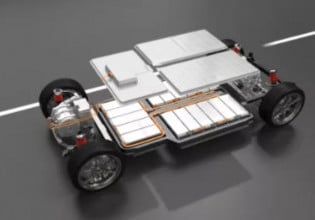Qnovo Lands Battery Management System Integration With NXP
NXP Semiconductor will add Qnovo’s optimization software to its battery management system and onboard charging hardware.
California-based software firm Qnovo recently landed Dutch chip giant NXP Semiconductor as a customer for its battery management system (BMS) software. Through the deal, NXP agreed to offer the company’s new SpectralX software in its electric vehicle products this year.

Image used courtesy of Pexels
California-based software firm Qnovo recently landed Dutch chip giant NXP Semiconductors as a customer for its battery management system (BMS) software. Through the deal, NXP agreed to offer the company’s new SpectralX software in its electric vehicle products this year.
SpectralX
More specifically, Qnovo’s software will integrate with NXP’s BMS and onboard charging hardware for two-wheeled EVs and other vehicles, reducing fast charging to around 20 minutes and improving range by up to 10% without sacrificing battery health. The integration also adds predictive capabilities and swappable batteries to NXP’s BMS.
Per Qnovo’s press release, SpectralX uses predictive analytics to enhance battery performance, range, and safety in several types of EVs equipped with lithium-ion batteries. The company claims the software can extend an EV battery’s lifecycle to around 621,371 miles, far exceeding the current industry average of 100,000 to 200,000 miles. Qnovo says SpectralX takes weeks to deploy in a vehicle, serving as an application layer atop the manufacturer’s existing BMS.
For NXP, the partnership means it can further meet demand in a key segment of its business: Sensing, processing, and control applications for the growing EV market. NXP’s automotive segment performed better than all other end markets in 2022, according to its latest annual earnings report. With a 25% jump in revenue from 2021, NXP’s auto segment accounted for 52% of its total sales last year.
By adding battery optimization, NXP can reach more EV customers, specifically those in the two- and three-wheeler market. SpectralX’s “edge” capabilities also mean NXP can extend its reach to areas in which cloud access is limited for remotely managing batteries.
Qnovo’s Battery Management Offerings
According to its website, Qnovo’s adaptive charging software is up to two times faster than existing technologies and adds around 20% of capacity to extend an EV’s range. With a higher range, EV manufacturers can sell extended warranties covering more than 600,000 miles. This would be significant since the United States government mandates EV companies to provide warranties of at least eight years or 100,000 miles. California requires an even higher benchmark, at ten years or 150,000 miles.
The NXP announcement comes after Qnovo revealed at this year’s CES that it landed a deal with Vanderhall Motor Works to use SpectralX in multiple all-electric vehicles launching worldwide this year.

Qnovo debuted its Vanderhall Motor Works partnership at CES 2023 with this light electric vehicle. Image used courtesy of Qnovo
Qnovo works with the top 10 global automotive original equipment manufacturers, as stated on its website, but its specific customers aren’t widely listed. Besides EV makers, the company also sells to smartphone manufacturers such as LG and Sony. It recently announced an integration deal with Japanese telecommunications giant NTT Docomo, which launched its Arrows N F-51C 5G smartphone with Qnovo’s battery management platform. Overall, Qnovo’s first-generation products are used in more than 150 million smartphones worldwide, up from 25 million five years ago.
Qnovo has raised $40.6 million since its founding in 2010, per Crunchbase data. That includes prominent investors such as Michigan-based automotive supplier BorgWarner, which led its $24 million Series C funding round last year, with additional participation from OGCI Climate Investments, a $1 billion climate-focused fund, and Constellation Technology Ventures, an arm of electric utility Exelon Corporation. The latter was an investor in its earlier $8.6 million Series B round, alongside the investment arms of Intel and Sony, and venture capital firms U.S. Venture Partners, Rockport Capital, and BRV Lotus.






